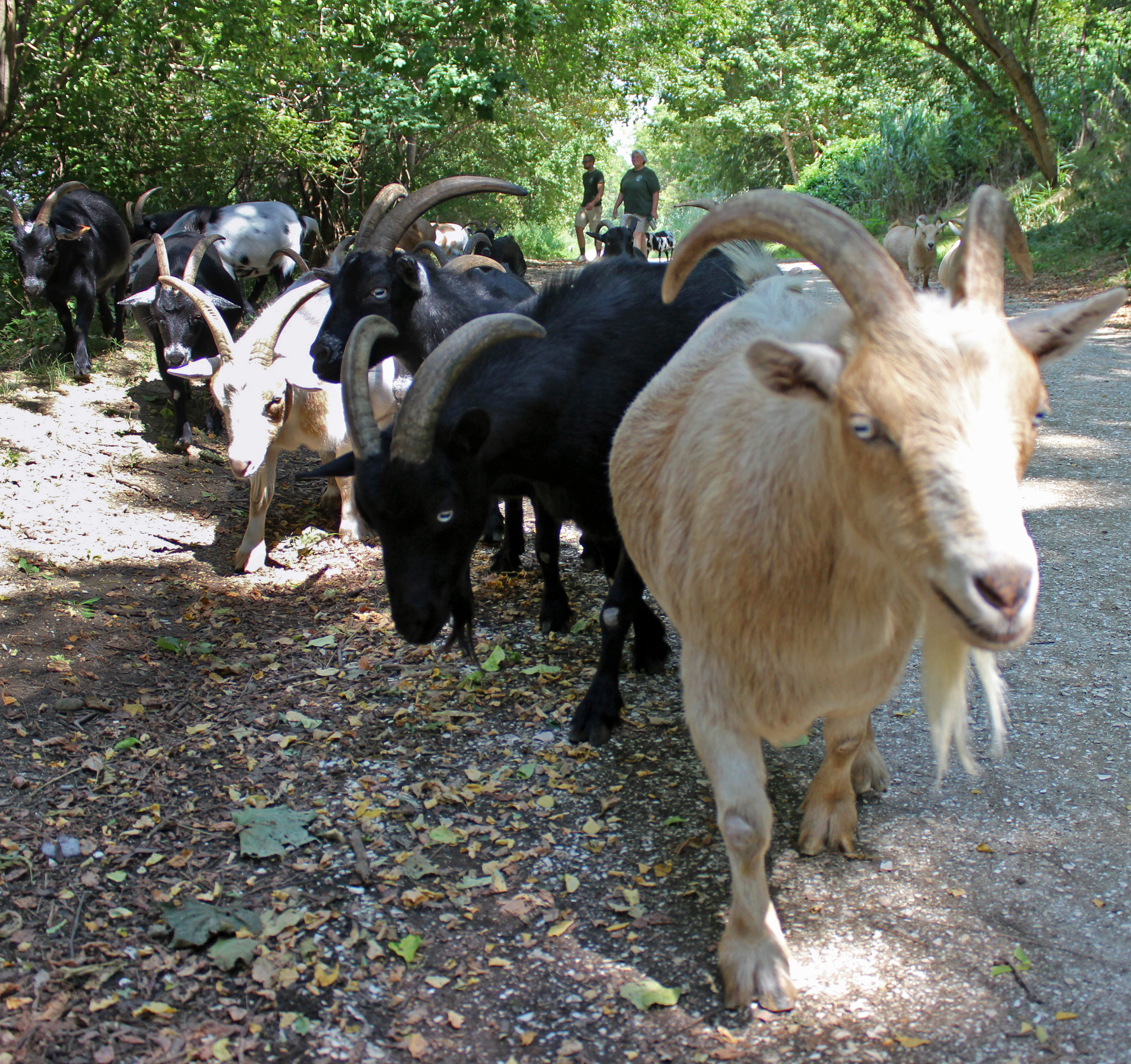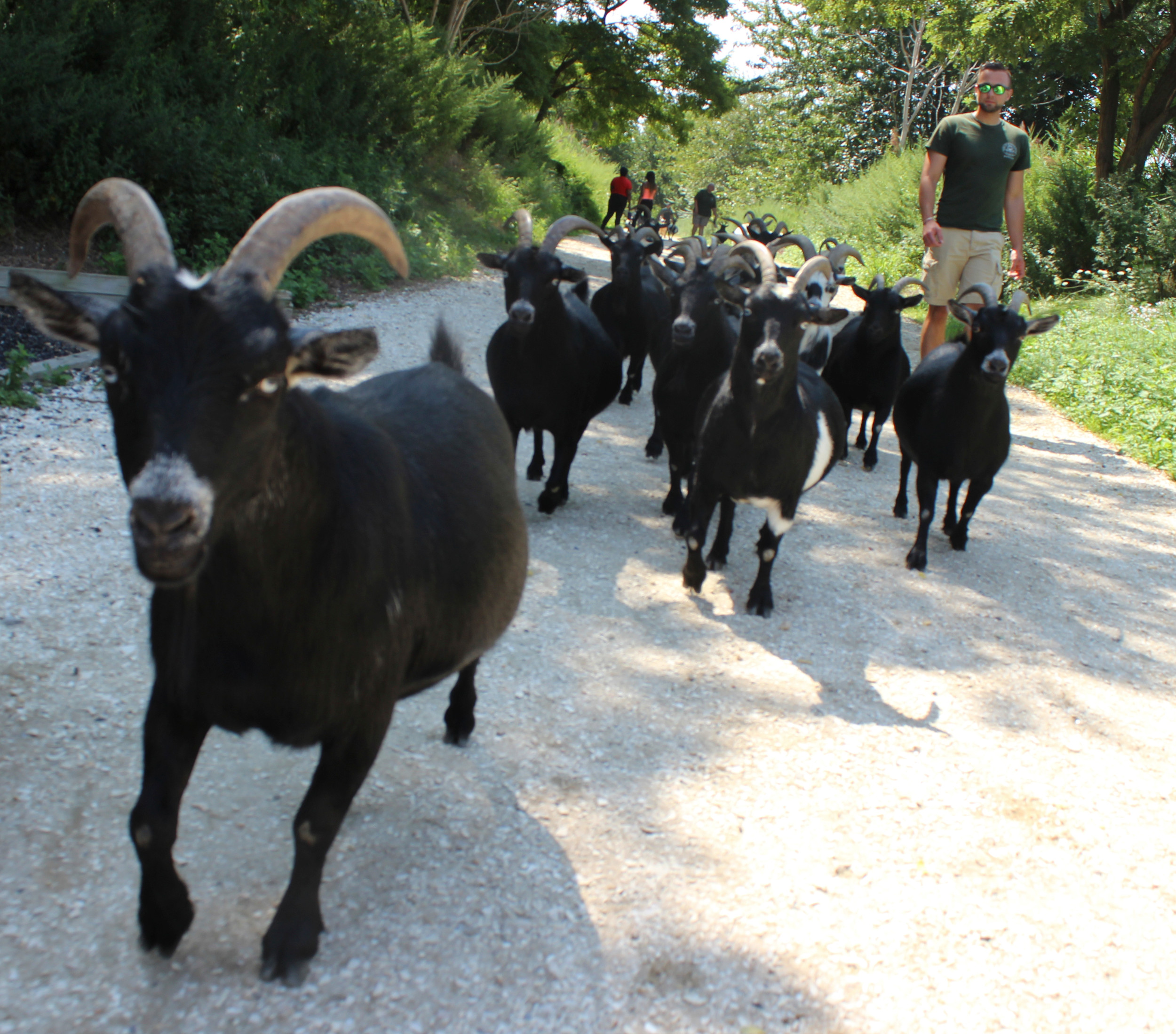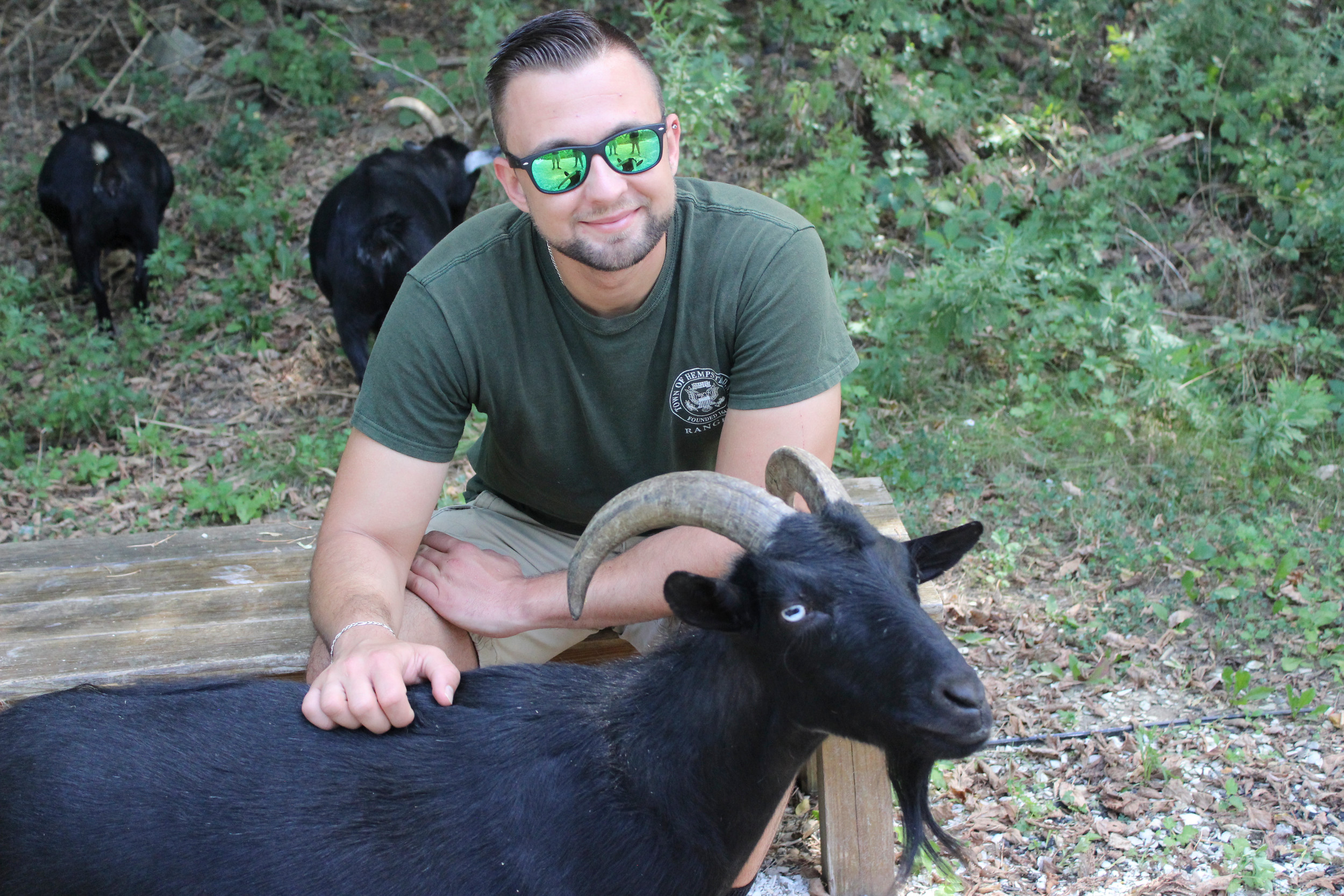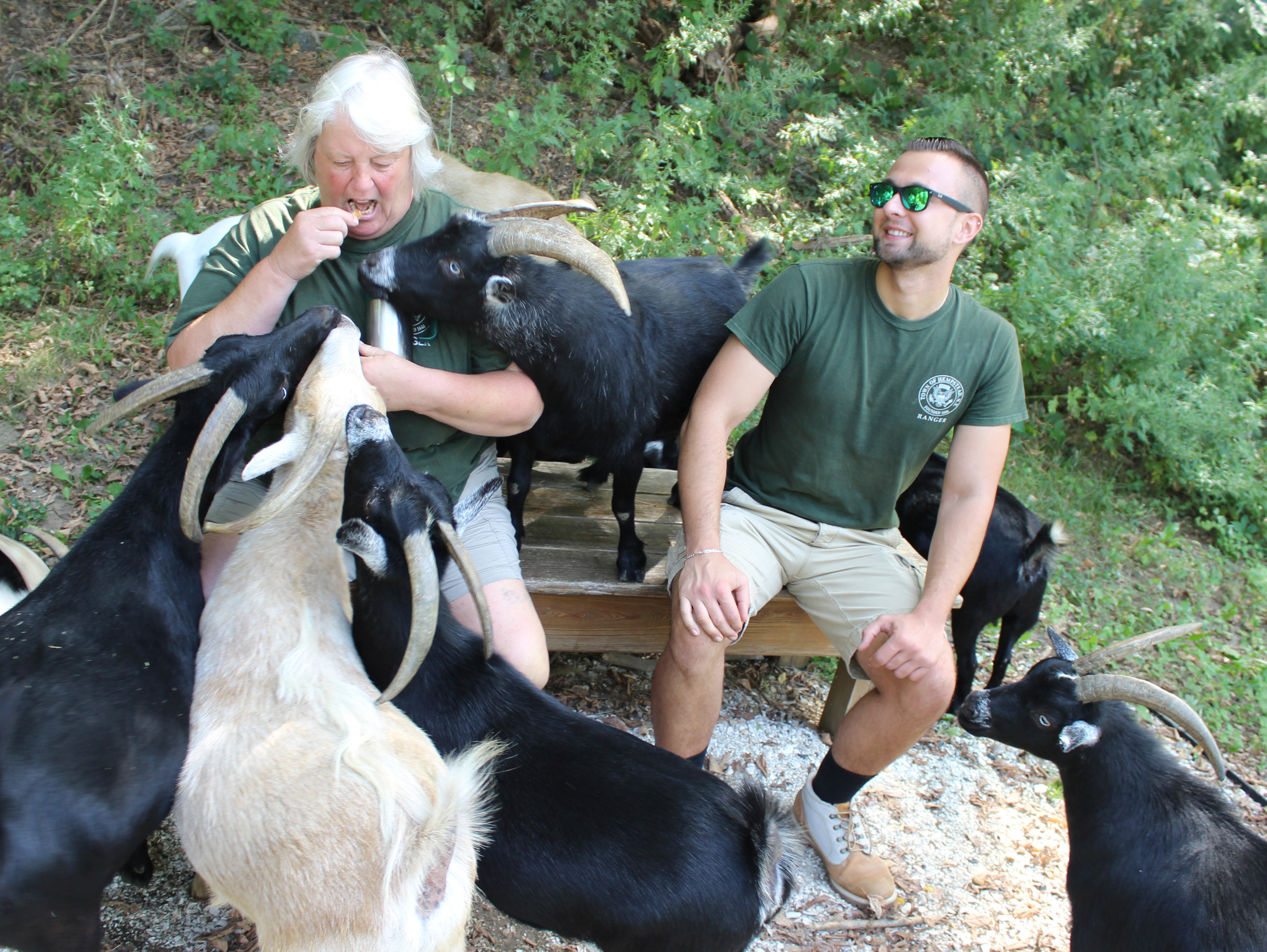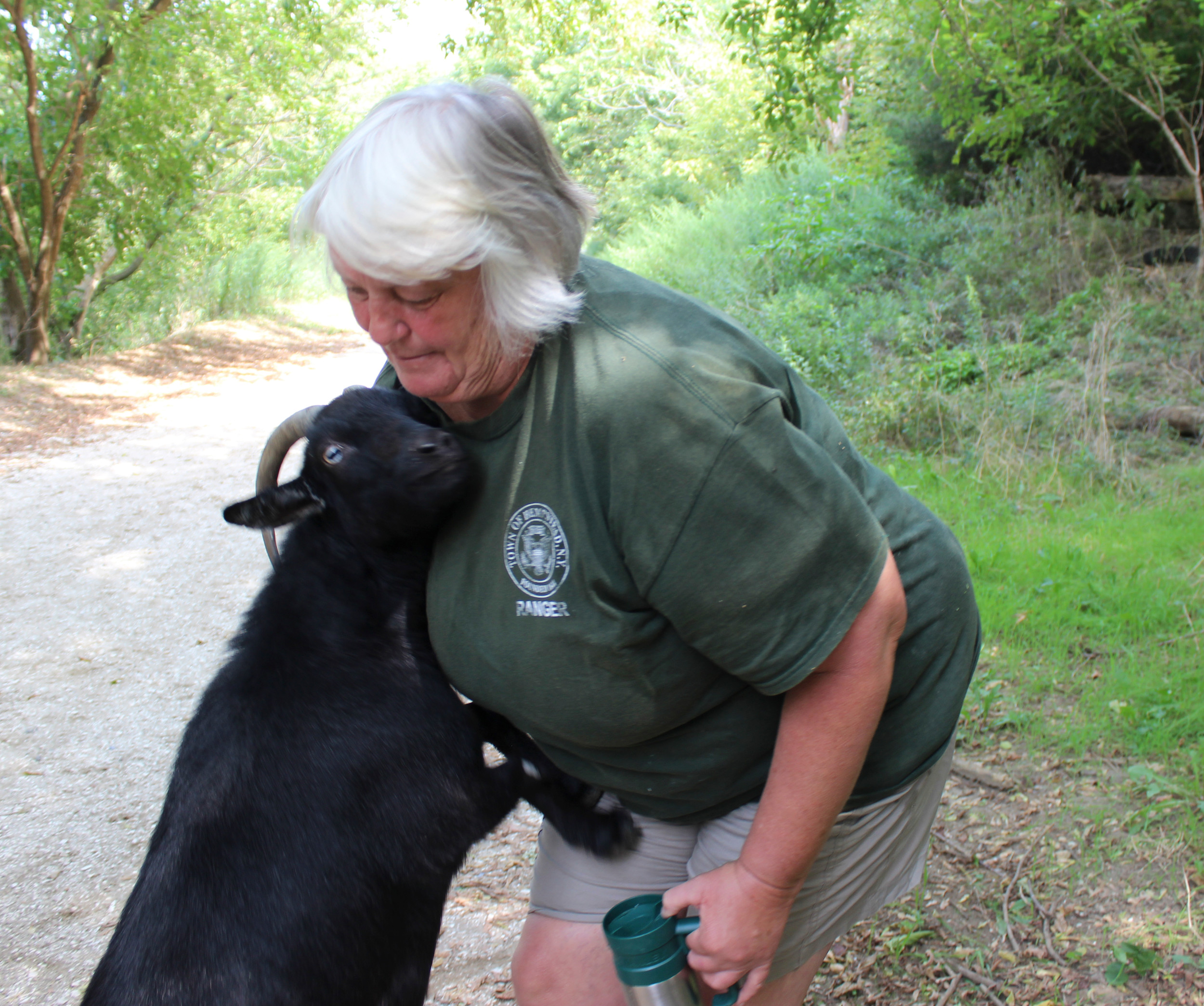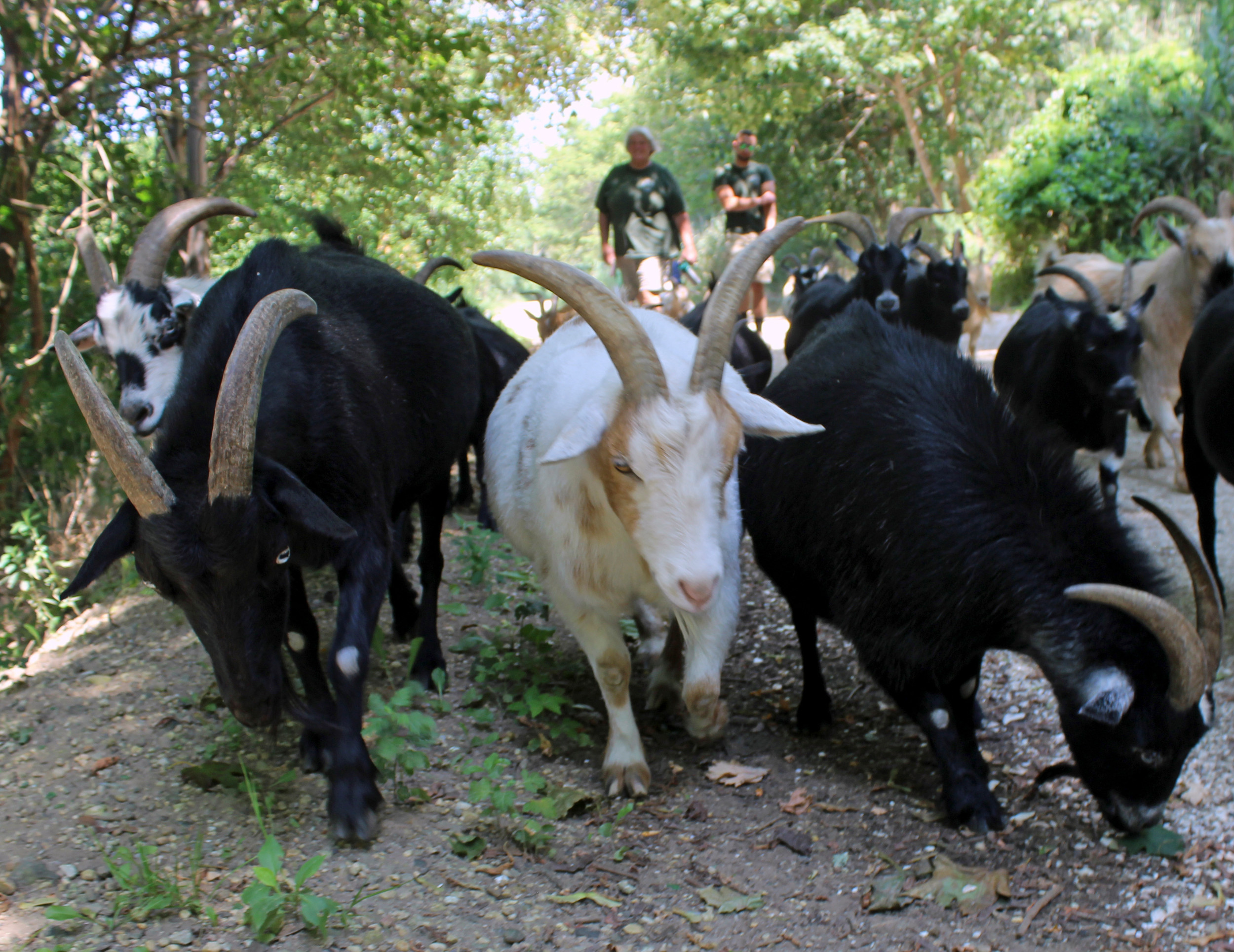Thursday, May 2, 2024
 63.0°,
Partly Cloudy with Haze
63.0°,
Partly Cloudy with Haze
Nature's little landscapers
Levy Preserve home to 24 Nigerian dwarf goats
Scientific name: Capra aegagrus hircus
Countries of origin: Nigeria, Niger
Maximum height: 21 inches
Average weight: 75 pounds
Temperament: Calm and docile; they are often used as companion animals.
Source: The Nigerian Dwarf Goat Association
A herd of 24 Nigerian dwarf goats trotted through the Town of Hempstead’s Norman J. Levy Park and Preserve in Merrick on Monday morning, weaving through joggers and parents with their children — all of whom stopped to pet the animals.
Eventually, the goats halted in their tracks. One by one, they peeled away from the group and got to work, finding a thicket of weeds or patch of overgrown grass to nibble on.
“They’re an eco-friendly alternative to lawn-mowing,” said park ranger Phil Gold. “And now they’re our most popular attraction at the park.”
The goats were first popularized in America because of their milk, but the Town of Hempstead purchased them in 2009 for a different reason: landscaping. And park ranger Sue Nurmi, of Merrick, said the goats double as friendly ambassadors of the park.
“We got these goats because of their disposition,” Nurmi said, adding that they are more than willing to be greeted by guests.
The town originally purchased five goats, but after two years and several births, that number grew to 24. The park has since spayed and neutered the herd to prevent future births, but according to Nurmi, guests still ask about pregnancies when they notice the goats’ bulging bellies.
The little landscapers, however, are just well fed. “I turned them into Americans,” Nurmi said with a laugh. “They have a great buffet here.”
The goats feast on an array of invasive plants and weeds as part of their service to the town. “Japanese knotweeds are their favorite,” Nurmi said. “But they eat everything, including poison ivy. You just have to be careful not to kiss them after that.”
Nurmi has been walking the goats through the preserve twice a day since they arrived, with help from rangers Phil Gold and Scott Devine. None of them had prior experience with goat herding, but over time they learned how to manage the creatures.
“You come to know all of their personalities,” Devine said.
“Elvis is the king of the mountain,” said Gold, pointing to a black goat with white ears. Elvis’s mother rejected him when he was born, Gold explained, and the park rangers had to keep him in the office and bottle-feed him.
Elvis is still not entirely used to being with other goats, and “he thinks he’s a human,” Gold added.
Nurmi said she knows every goat by name, despite how similar some of them appear to be. She pointed out Bashful, who has Dalmatian-patterned fur and limped behind the herd because of her arthritis. There was Happy, at the front of the herd with beige fur and a damaged horn. Nurmi said it broke when Happy tried to fight another goat named Sneezy.
“I’ve got in the middle of a lot of battles,” she said, but added that the fights are generally quick and fleeting. Happy’s loss of a horn, however, left Nurmi a bit shaken, she said.
“Everybody says I’m blessed to be out here with them,” she said, “but there’s a lot of work behind the scenes … It’s like having children.”
Levy Preserve is one of many parks and organizations to use goats in addition to, or in lieu of, traditional landscaping. The same year the town officials bought five, Google purchased 200 to control the lawn surrounding its Googleplex offices in Mountain View, Calif.
HELP SUPPORT LOCAL JOURNALISM
The worldwide pandemic has threatened many of the businesses you rely on every day, but don’t let it take away your source for local news. Now more than ever, we need your help to ensure nothing but the best in hyperlocal community journalism comes straight to you. Consider supporting the Herald with a small donation. It can be a one-time, or a monthly contribution, to help ensure we’re here through this crisis. To donate or for more information, click here.
Sponsored content
Other items that may interest you

